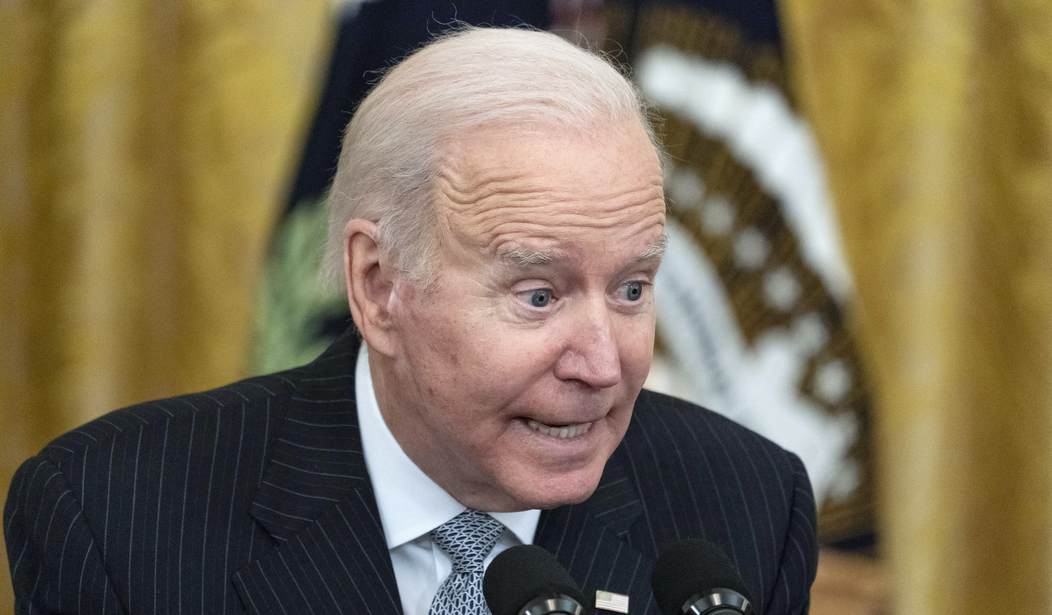There was no Russian collusion with President Donald Trump. Indeed, what we were sold about this was a narrative aided by the Democrats. We know this not just because we know the facts, but we know this because of the actions of President Donald Trump, which ran counter to the very nature of what Russia wanted.
Trump not only helped to make America more energy-independent but as we have noted in the past, he was calling out Europe’s dependence on Russian oil. He took a lot of other actions — such as not being afraid to drop bombs on the heads of Russian contractors in Syria after they fired on U.S. forces. That energy piece, though, was perhaps the most significant indication this was a false story because that’s the most important thing to Russia.
I know CNN & MSNBC never aired this, so I figured I would. Spot on, don't you think? pic.twitter.com/6V1vRKxP8p
— Justin Pulitzer 🍊 (@JustinPulitzer) February 24, 2022
But that doesn’t mean there haven’t been other Russian “collusion” or attempts to influence the United States, as some have alleged.
In 2014 – the same year Russia annexed Crimea – then-North Atlantic Treaty Organization (NATO) Secretary-General Anders Fogh Rasmussen warned that Russia was covertly working to undermine European and U.S. fossil fuel production.
Three years later, in 2017, Reps. Lamar Smith (R-Texas) and Randy Weber (R-Texas) sent a lengthy letter to then-Treasury Secretary Steven Mnuchin making a similar accusation. Importantly, their letter connected some of the dots highlighting Russia’s covert efforts to fund various environmental organizations that were trying to limit or end U.S. hydraulic fracturing, or fracking, for shale gas and oil. [….]
According to The Guardian, Rasmussen, who was also a former prime minister of Denmark, claimed in a presentation to a think tank in London, “I have met allies who can report that Russia, as part of their sophisticated information and disinformation operations, engaged actively with so-called non-governmental organizations (NGOs) – environmental organizations working against shale gas – to maintain European dependence on imported Russian gas.”
He declined to give details, saying only, “That is my interpretation.” NATO’s press office said the remarks were Rasmussen’s personal views, not official NATO policy.
Indeed. Because some of the NATO members, at about that time, seemed to be completely ignoring that concern and getting in bed with Russia on oil. That’s why Trump had to call them out on it, saying it didn’t make sense for them to be doing that if the main purpose of NATO was supposed to be about defense against Russia.
That said, a NATO official did acknowledge, “Russia has been using a mix of hard and soft power in its attempt to recreate a sphere of influence, including through a campaign of disinformation on many issues, including energy.
So, to get back to the question of those environmental groups.
Smith and Weber assert that the Russian government and “complicit parties” had a scheme that “allows money originating from foreign countries like Russia to funnel through Bermuda-based shell companies to environmental groups in the United States with the aim of disrupting the U.S. energy industry.”
They alleged that “tens of millions of dollars” were handed to Bermuda-based Klein Ltd., which then funneled the money to the Sea Change Foundation, which distributed the funds to various NGOs.
Clearly, environmental groups have had some success with their anti-fracking efforts. New York, Washington and Maryland have banned fracking. California Gov. Gavin Newsom issued and executive order last year banning fracking in the state by 2024.
As Michael Shellenberger explains in a great Twitter thread, Europe has a ton of shale gas potential, so there’s no need to be dependent on Russia. Yet, protests and the climate change agenda are what have prevented them from plumbing those possibilities — that such things are impacting us as well.
People think Europe depends on Russia for energy because it lacks its own, but 15 years ago Europe exported more natural gas than Russia does today. Now, Russia exports 3x more gas than Europe produces. Why? Because climate activists, partly funded by Russia, blocked fracking. pic.twitter.com/m9ifRLs0ku
— Michael Shellenberger (@ShellenbergerMD) March 3, 2022
In Europe, it was a simple thought — the more reliant that Europe was made on Russian oil, the less likely it was that it would act with effectiveness against Russia. We saw that with how Germany had to be dragged to finally agreeing to SWIFT sanctions, but even then it only applies to seven banks , according to the Ukrainian member of Parliament Oleksandra Ustinova. As the Biden Administration has said, they’re not trying to affect Russian energy. The excuse? That they don’t want to affect others who are dependent on Russian oil. In other words, Russian efforts to make Europeans dependent were successful.
This is what should have been looked into, but it wasn’t because that would require the Biden team to take a hard look into things — and they don’t want to look at it.
But under Biden, we have also become more dependent, now importing 595,000 barrels of oil a day from Russia. Unless we want to have a continual national security problem, we have to divest as much as possible and rebuild our independence. But the Biden response is to blow off this concern. Listen as Biden’s Deputy Secretary of State Wendy Sherman tells Rep. Brian Mast (R-FL) that we shouldn’t say no to Russia, although we might need to “reevaluate,” in light of national security concerns and climate change.
REP. BRIAN MAST: "Should Europe and the West…divest of Russian energy?"
BIDEN’S DEPUTY SECRETARY OF STATE WENDY SHERMAN: "No" pic.twitter.com/JPep1OMNE7
— RNC Research (@RNCResearch) March 2, 2022
Translation: they’re now using this to try to buttress their argument to divest from all fossil fuels rather than seeing that it shows — more than ever — why we need to have our own energy independence.













Join the conversation as a VIP Member